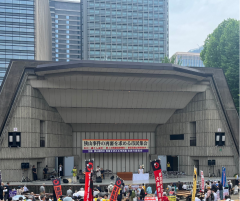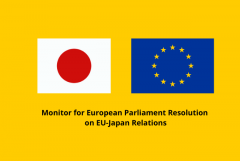Dalit women in India and the socioeconomic recovery from the COVID-19 pandemic (HRC47, 2021, OS)
July 6, 2021
Together with the International Dalit Solidarity Network and the National Council of Women Leaders, IMADR delivered the oral statement on “Dalit women in India and the socioeconomic recovery from the COVID-19 pandemic” at the 47th session of the Human Rights Council. Whole text can be read below or download here. ![]()
———
Oral Statement: 47th session of the Human Rights Council
Annual full-day discussion on the human rights of women – Gender-equal socioeconomic recovery from the COVID-19 pandemic
6 July 2021
Madam Chair,
Dalit women in India face a triple burden of caste, class and gender. They do not yield any power and status in the society. According to the fourth round of the National Family Health Survey (2015-16), even within their homes Dalit women have little power: 60% of Dalit women have no say in how money is spent, 46% do not have individual bank accounts, 46% cannot go alone to the market, 49% cannot visit a health facility on their own and 35.7% have experienced some form of physical violence after age 15 inside their homes.
COVID-19 has impacted lives of Dalit women and girls much more than anyone in India. Especially those Dalit women engaging in the sanitation work are risking their lives in the pandemic as frontline workers without any social security. To recover from the pandemic, they have to rely on the support of human rights activists who work to provide them groceries and medical support.
Many Dalit women at the grassroots are striving to make the lives of their communities better. They are getting empowered, trained and building their leadership through the support of Dalit women rights activists like me and others alike from their communities.
I, on behalf of National Council of Women Leaders, want to submit these recommendations:
- To recognise the existence of Dalit women as both sanitation workers and frontline workers to ensure that their lives are socially protected through effective implementation of laws enacted under the Indian Constitution.
- That these women can economically rebuild themselves from the impact of the pandemic through a special economic policy with a separate budget that enables them to get adequate protective gears, safety kits, dignified livelihood and independence to sustain their children and families.
Thank you.





